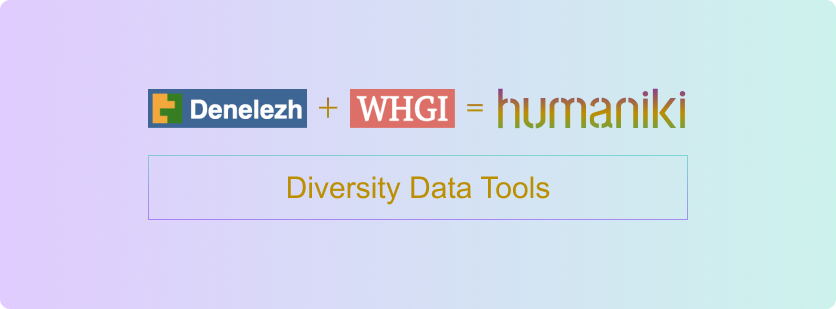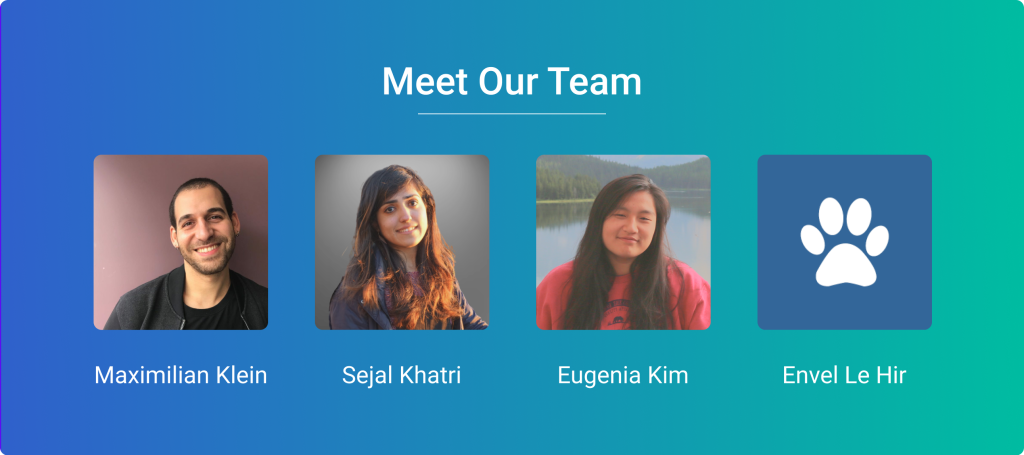
What do Wikipedians need to make more diverse content? Better redlink listmaking? Highlighting more translation opportunities? Building editathon and campaign tracking software? Something else?
We’re pleased to introduce ‘Humaniki’, the merging of two previous Wikimedia projects Wikidata Human Gender Indicators (WHGI) and Denelezh, providing data tools for diversity-focused editors. Both of these previous projects enabled statistics about the biography gender gap in Wikimedia projects, but need extra work to make these insights actionable for editors. This new WMF-grant-funded project seeks to do that work by participatory co-designing features with the editor community. Are you a diversity-focused editor? We would like to get your input — register here.
While we start to interview and survey users to ensure we develop useful features for the community, there is another side to the project which we’ve already started. To underpin whatever new features arise, we will start by merging WHGI and Denelezh projects, making the technology more robust and extensible. In August, we already got underway on this endeavor by assembling the Humaniki team. Let’s meet them:

Maximilian Klein: Hi, I’m Max, the project manager and software lead on Humaniki. In 2014, soon after the Wikidata release, I saw an opportunity to measure Wikipedia’s diversity, at least on one dimension, and created the Wikidata Human Gender Indicators in a previous WMF grant. I’m so pleased to be able to revisit the project and make the 2.0 version that the community deserves. The most fun part I’m looking forward to is getting to meet and see the work of really devoted editors.
Sejal Khatri: Hi, I’m Sejal, a design researcher based in Seattle and will be leading the user research on Humaniki. I recently graduated from the University of Washington, where I was a member of the Community Data Science Collective and investigated participation dynamics in underrepresented Wikipedia language editions from India. Before switching to research, I was a UX engineering intern for the Wikimedia Programs and Events dashboard. I am looking forward to meeting community members to understand their needs and expectations from Humaniki and help them make an impact.
Eugenia Kim: Hi, I’m Eugenia, a software engineer based in New York and will be concentrating on the front-end for this Humaniki project. I recently graduated from Flatiron School, a software engineering bootcamp. Before I was a software engineer, I was a student, a non-profit worker, and a labor union researcher. I enjoy going on hikes and hanging out with my dog.
Envel Le Hir: Hi, I’m Envel, a data engineer. In 2017, after a conference by Florence Devouard, I created Denelezh to explore the gender gap in Wikidata through several dimensions. As this tool remains in the state of a proof of concept, I’m glad to collaborate with Max and the Humaniki team to build a complete tool to assess the diversity in the content of Wikimedia projects, and that will be useful to researchers and the Wikimedia movement.
How to get involved:
The team is eager to take our previous work further and make gender statistics and lists useful for community users. That’s where we need your input, as Wikimedia community members. Please get in touch with us by filling a survey form, to be a research participant, and have your voice heard.

Written by Eugenia Kim, Envel Le Hir, Maximilian Klein, Sejal Khatri.

Can you help us translate this article?
In order for this article to reach as many people as possible we would like your help. Can you translate this article to get the message out?
Start translation
